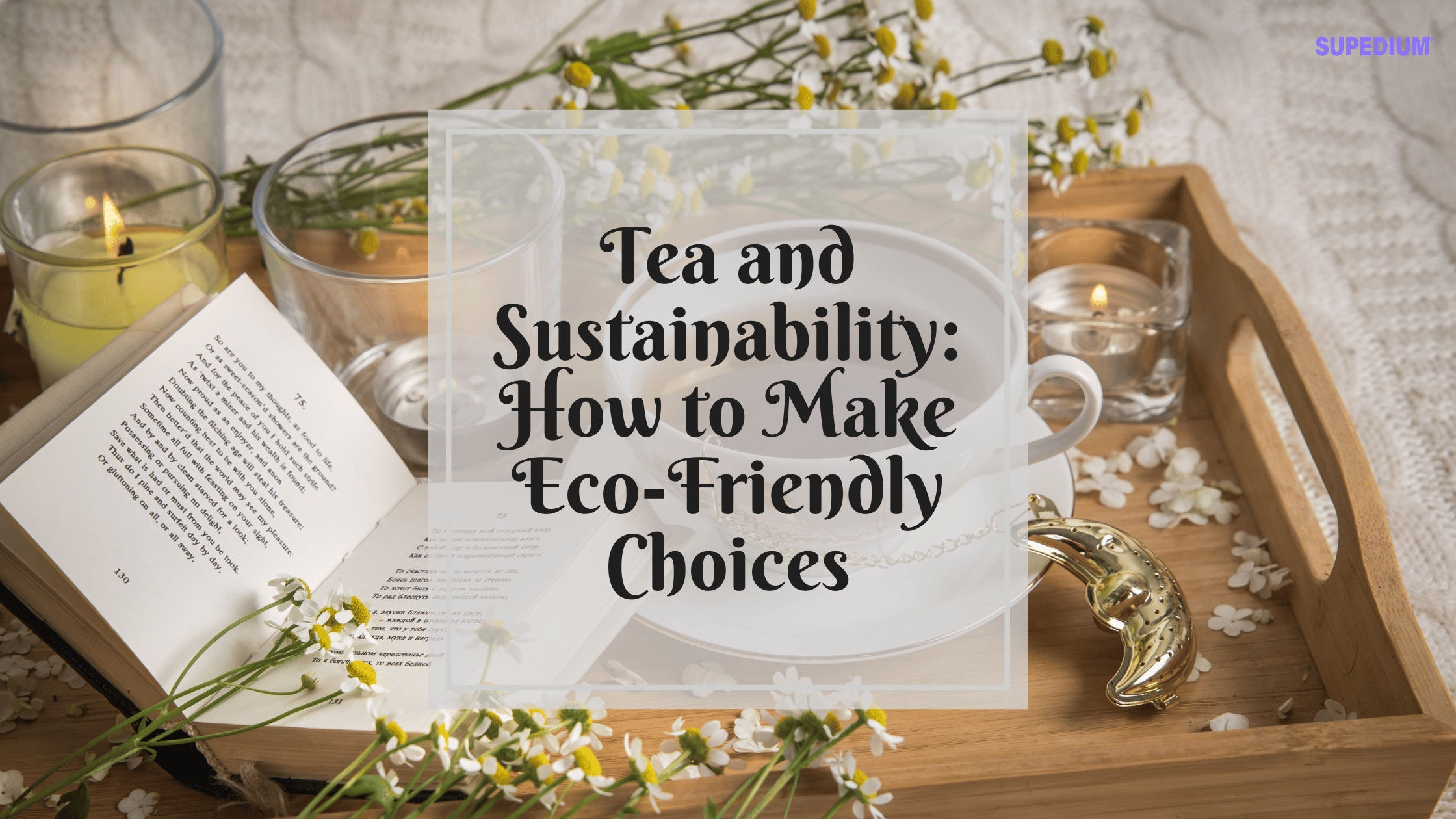Table of Contents
![]()
Introduction
Tea is one of the most consumed beverages in the world, cherished for its flavors and cultural significance. As global awareness of environmental issues grows, many consumers are increasingly concerned about the sustainability of their food and beverage choices, including tea. This article explores the environmental impact of tea production and offers practical guidance on making eco-friendly tea choices.
The Environmental Impact of Tea Production
Overview of Tea Cultivation
Tea, derived from the leaves of the Camellia sinensis plant, is produced in various forms, including black, green, oolong, and herbal teas. Major tea-producing countries include China, India, Kenya, and Sri Lanka. While tea cultivation supports the livelihoods of millions, it also has significant environmental consequences.
Deforestation and Land Use
The expansion of tea plantations often leads to deforestation and habitat loss. Large tracts of land are cleared to make way for tea fields, which disrupt local ecosystems and threaten biodiversity. This land use can also lead to soil degradation and increased erosion, reducing the land’s long-term viability for agriculture.
Water Usage
Tea production is notoriously water-intensive. The cultivation process requires substantial amounts of water, raising concerns about the depletion of local water resources. In regions where water is already scarce, this demand can exacerbate conflicts over water rights and negatively impact local communities.
Chemical Usage
Many conventional tea farms rely on synthetic pesticides and fertilizers to boost yields. These chemicals can contaminate soil and waterways, harm local wildlife, and contribute to long-term ecological damage. The overuse of these substances poses risks not only to the environment but also to the health of farmworkers and consumers.
Understanding Sustainable Tea Practices
Organic Tea Farming
Organic tea farming avoids synthetic chemicals and promotes biodiversity through natural farming methods. Organic tea is typically grown without the use of pesticides and fertilizers, which benefits both the environment and the health of those who consume it. Look for certifications such as USDA Organic or similar standards when choosing organic tea.
Shade-Grown Tea
Shade-grown tea is cultivated under the canopy of trees, which supports biodiversity and provides a habitat for various species. This method reduces the need for chemical inputs, protects soil quality, and conserves water. Some tea producers are dedicated to sustainable practices, offering shade-grown options that enhance ecological balance.
Regenerative Agriculture
Regenerative agriculture focuses on restoring and enhancing the health of ecosystems. This approach goes beyond sustainability by actively improving soil quality, increasing biodiversity, and sequestering carbon. Some innovative tea farms are implementing regenerative practices, creating a more sustainable model for tea production.
Fair Trade and Ethical Sourcing
Fair Trade certification ensures that tea producers receive fair wages and work in safe conditions. Supporting Fair Trade tea not only promotes ethical labor practices but also contributes to the well-being of communities. Look for Fair Trade labels when purchasing tea to support responsible sourcing.
Eco-Friendly Tea Brands and Products
Overview of Leading Sustainable Tea Brands
Many brands are committed to sustainable practices and offer a range of eco-friendly teas. Researching and selecting brands that prioritize sustainability is crucial for making informed choices.
Criteria for Evaluating Sustainability in Tea Brands
When assessing tea brands, consider the following criteria:
- Certifications and Labels: Look for organic, Fair Trade, and Rainforest Alliance certifications.
- Transparency: Choose companies that are open about their sourcing and production practices.
Recommendations for Eco-Friendly Teas
Here are some notable eco-friendly tea brands:
- Numi Organic Tea: Offers a wide range of organic and Fair Trade-certified teas.
- Harney & Sons: Known for their commitment to sustainable sourcing and quality.
- Rishi Tea: Focuses on direct trade with farmers and organic practices.
Additionally, exploring local and artisanal options can lead to discovering unique and sustainable teas while supporting local economies.
Sustainable Tea Preparation and Consumption
Eco-Friendly Brewing Methods
To minimize waste, consider using loose leaf tea instead of tea bags, which often contain plastic. Loose leaf tea can be brewed using a reusable infuser, significantly reducing environmental impact.
Reusable Tea Accessories
Investing in reusable tea accessories such as infusers, kettles, and mugs helps cut down on single-use products. By opting for durable, sustainable alternatives, you can enhance your tea-drinking experience while minimizing waste.
Mindful Consumption
Adopting a mindful approach to tea consumption can further promote sustainability. This includes reducing overall tea consumption, avoiding waste, and supporting local tea producers when possible.
Advocacy and Community Involvement
Supporting Sustainable Initiatives
Engaging with community initiatives focused on sustainability can amplify your impact. Supporting local organizations that promote eco-friendly practices in agriculture helps create a collective movement toward sustainability.
Raising Awareness About Tea Sustainability
Education plays a vital role in fostering awareness about the importance of sustainable tea choices. Sharing knowledge through social media, blogs, or community events can encourage others to consider the environmental impact of their beverage choices.
Conclusion
As consumers become more aware of the environmental consequences of their choices, making informed decisions about tea becomes essential. By prioritizing sustainable practices and supporting eco-friendly brands, we can enjoy our favorite beverage while contributing to a healthier planet. Together, individual choices can drive significant change in the tea industry and beyond.
Share This





Be the first to comment